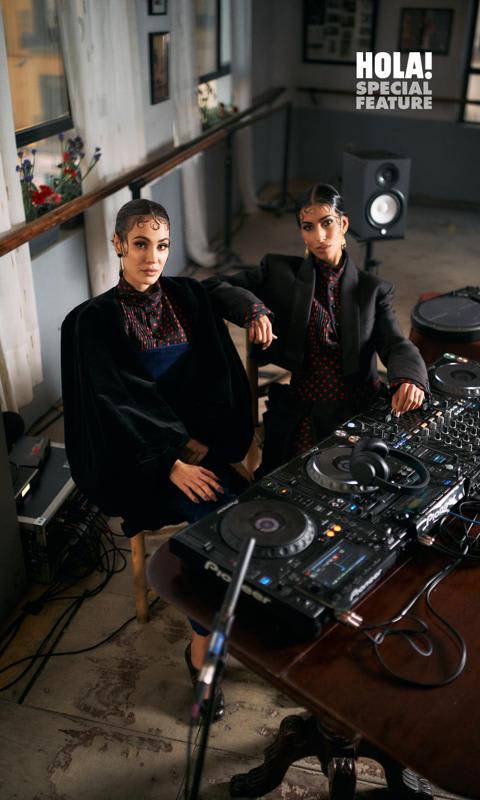Mëstiza have captured the attention of the world. The musical duo have placed themselves at the center of the conversation due to the talent of their members: Pitty Bernad and Belah. By fusing flamenco and electronic music, both artists have managed to create incredibly unique sounds that blend Spanish folklore and technology. In just over three years, the two have formed their own identity and are constantly on tour, performing in locations across Europe, Latin America and the United States.
Belah and Pitty Bernad spent various years building their separate careers. In 2021, the two decided to partner up, creating a universe of incredible live performances, beautifully compoased music videos, and unique songs that explore their identity and background. Nothing occurs by chance with Mëstiza; the concept of the project has been thoroughly realized by its creators, who’ve mapped out every inch in order to achieve success.
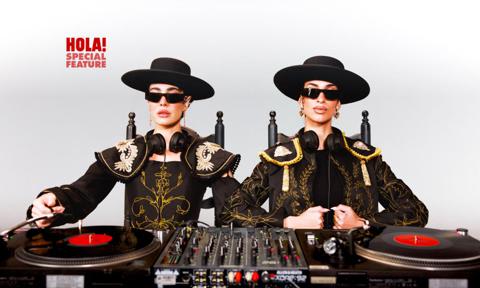
Bernad and Belah attended the Music Conference 2024 in Miami, where HOLA! AMERICAS managed to speak with them to learn more about the electric fantasy they’ve been building. The musicians discussed Mëstiza’s origins, their musical influences, their fashion style, and their long term plans.
“For us, it’s an honor to take our music through the world, that people come to see us and that they dance and enjoy our sounds. We’re always touring and traveling the world. Now it’s an honor to take our culture to the United States. ”
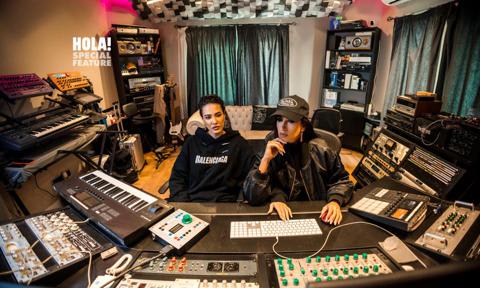
When asked about the origins of their project, both women highlighted that the partnership was born out of a friendship, and out of the fact that they’re both passionate about their careers.
“Mëstiza is a project that was born out of our friendship and of the ideas we share. It occurred three years ago, in Madrid, after we had a conversation that showed how similar we felt in regards to the use of electronic music and being able to fuse it with our folklore and with flamenco, because that’s our background,” said Bernad.
Watch an excerpt of our interview here:
Belah said: “That’s how it came up and the truth is that it’s worked because it’s something that hadn’t been done before. We could say that Mëstiza is a fusion of Spanish folklore and electronic music, where we create a full experience for the person that’s in the audience. Yeah, we can define it as that.”
As it tends to happens with artists that are visionary and that stand in the vanguard, both women know that this type of musical fusion might make some people uncomfortable, especially those that see folklore as something that’s traditional and untouchable. Nonetheless, purists have welcomed their music, with many seeing the duo in a positive light, acknowledging that they’re pushing the genre’s boundaries and introducing it to new people.
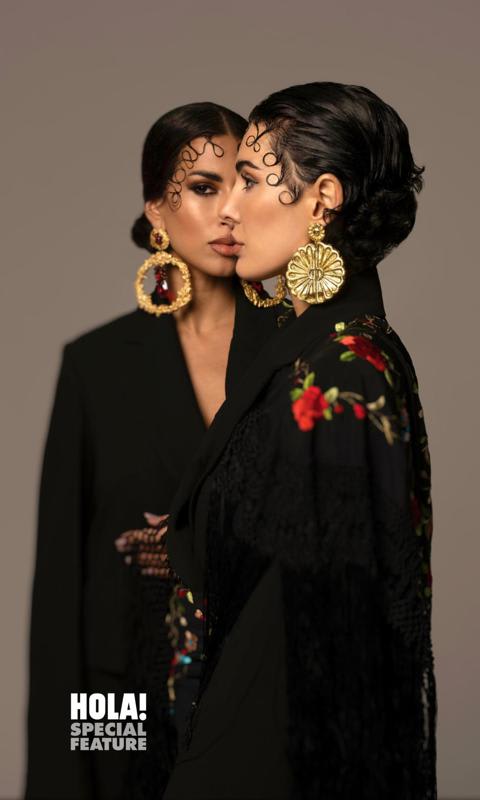
“I think that it’s very important for any artist or any person managing a project that they believe in what they’re doing. For us, it was very important to know what we wanted and how we wanted to achieve it, which we were very clear about since the beginning. And then there’s a part of us that doesn’t care what people say. We’re gonna do what we want to do because we love it… What we’re gonna achieve, we’re gonna believe it ourselves, and we don’t care what other people think. I’m sure any person that’s running a project or that is an artist can understand and connect with this, because when you know you’re right and you fight for it, that’s when you achieve things,” says Bernad.
Mëstiza: fashion, style and influences
When it comes to the creative process, Bernad and Belah focus on accelerating flamenco’s rhythm, adorning it with beats and making it contagious, that way the audience experiences something special. Their visuals are also a big part of the experience, with the women working with a group of stylists. “We have people that are assisting us constantly to make the best decisions and choose the best styles, but the direction of the musical image is completely ours.”
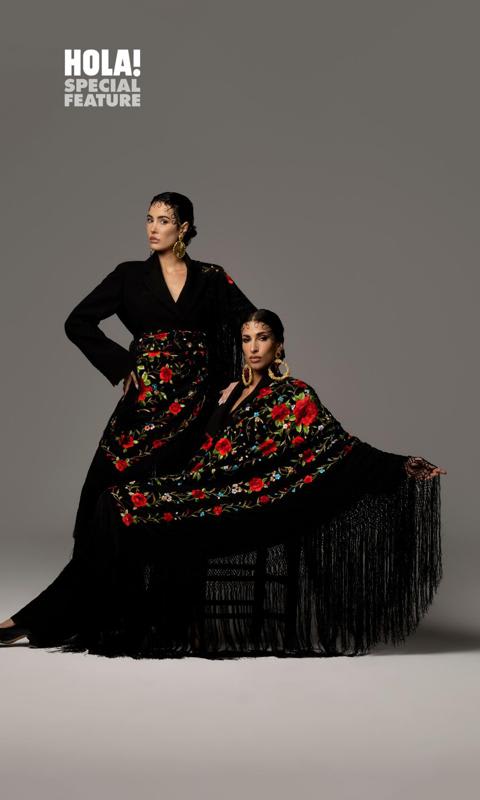
When discussing their musical influences, Mëstiza takes inspiration from a wide pool of sources, from the most traditional flamenco, including songs made famous by Camarón de la Isla, Paco deLucía and Estrella Moriente, to more current artists like Israel Fernández. In terms of electronic music, the two are inspired by the South American DJ Black Coffee, who they named as “an example that helped us incorporate tradition in our music and have a look back at our origins.”
“We just released our album, Quëreles, which is number one in Spain today. We’re promoting that record and everything has been going great. We always say that we live in an eternal tour, because we’re constantly traveling. So you’re gonna have us all over the world. We’ve been jumping from Asia, to America, to Europe nonstop.”

